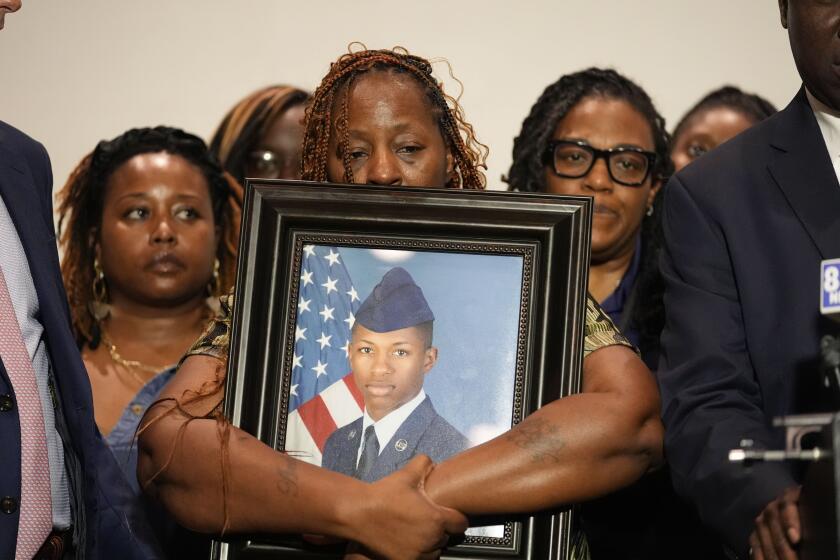LBJ Voiced Civil Rights Strategy on Tape
President Lyndon B. Johnson used his vaunted powers of persuasion to try to calm a fiery Alabama Gov. George Wallace and head off civil rights violence in 1965, according to newly released tapes of their telephone conversations.
By mid-March 1965, state troopers and segregationists had killed two civil rights workers in Alabama and beaten others during marches from Selma to the state capital of Montgomery.
With the Rev. Martin Luther King Jr. planning to lead another, bigger march, Johnson tried to reassure an anxious Wallace during a phone call March 18.
“They are flying in nuns, priests and we got hundreds of bearded beatniks in front of my capitol,” Wallace said. “And the point I’m making is that we are going to do the best we can, but we hoped that you might use your influence to at least make them have an orderly march.”
Johnson pointed out that the sooner the march occurred, the sooner the out-of-state protesters would leave.
“The longer the march is postponed, the greater the presence, the longer the people from outside are gong to stay in Alabama. And the more problem you are going to have, the more problem I am going to have, and the more problem the country is going to have,” Johnson said.
After Wallace worried that the upcoming demonstration might look like “a revolution,” Johnson voiced his displeasure.
“When you talk about revolution, that really upsets us all and we--we know you don’t and I know I don’t want that--so we’ve just got to work together best we can to see that we discharge our duties,” Johnson said.
Wallace backpedaled, saying he didn’t actually mean a revolution was imminent, but said, “We have some revolutionaries down here.”
Three days after the conversation, King led civil rights activists from Selma to Montgomery to protest discrimination against black voters.
The tapes were released Friday by the LBJ Library at the University of Texas in Austin.
Johnson was well aware of how civil rights activists could help him. In a January telephone call, he wooed King with the possibility of appointing a black man to the Cabinet.
He also urged King to publicize the worst example of discrimination against a black who wanted to register to vote--a prestigious person such as a government official or university president--because it would help Johnson get another civil rights bill through Congress.
“If you take that one illustration and get it on the radio, get it on television, get it in the pulpits, get it in the meetings, every place you can, then pretty soon the fellow who didn’t do anything but drive a tractor would say, ‘Well, that is not right, that is not fair,’ ” he said.
For his part, King gave Johnson--who had been elected president only a couple of months earlier--some political advice about the benefits of registering more blacks to vote.
“And it is very interesting, Mr. President, to notice that the only states that you did not carry in the South, the five Southern states, had less than 40% of the Negroes registered to vote,” King said.
“That is exactly right,” Johnson said.
The LBJ Library releases presidential tapes about every six months in batches of three months at a time, in chronological order. The latest release covered January to March 1965.
More to Read
Start your day right
Sign up for Essential California for news, features and recommendations from the L.A. Times and beyond in your inbox six days a week.
You may occasionally receive promotional content from the Los Angeles Times.






